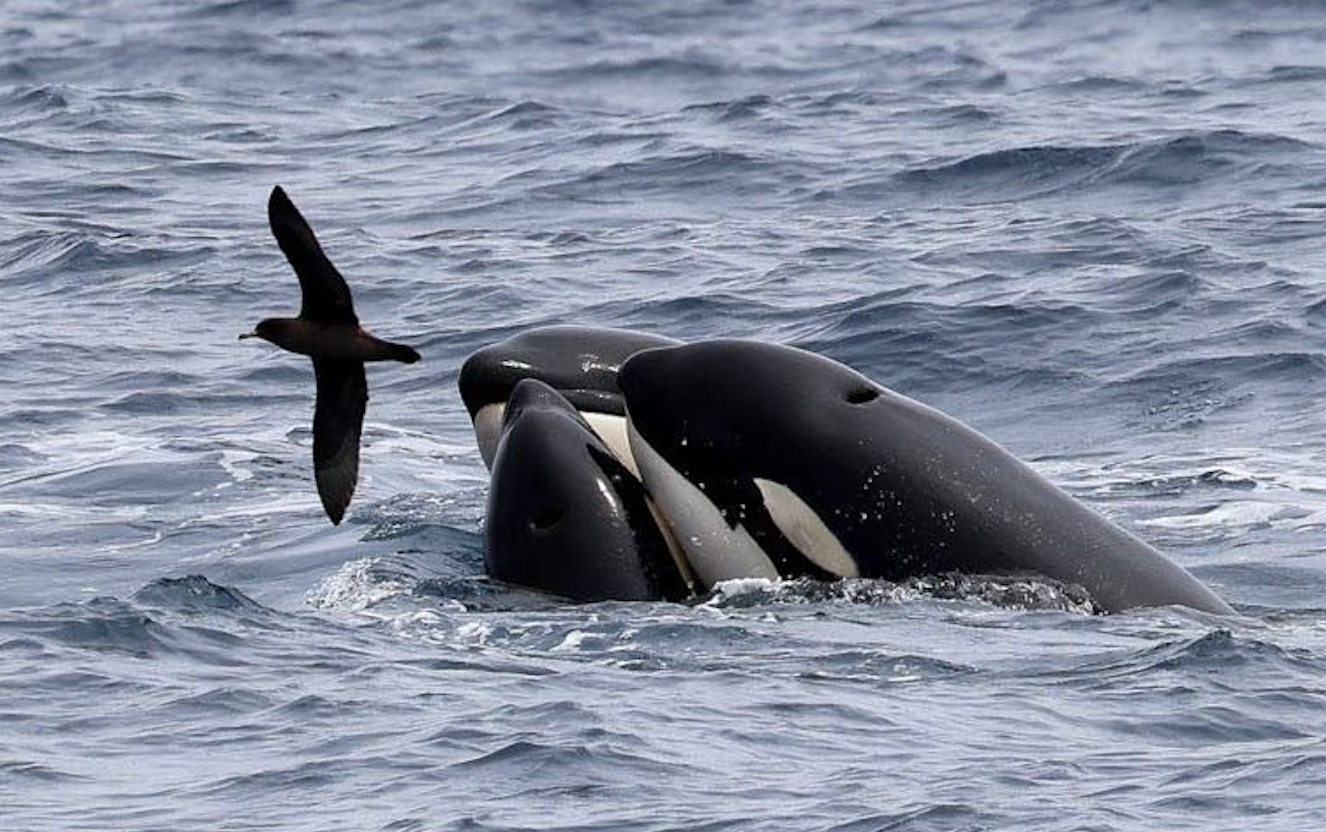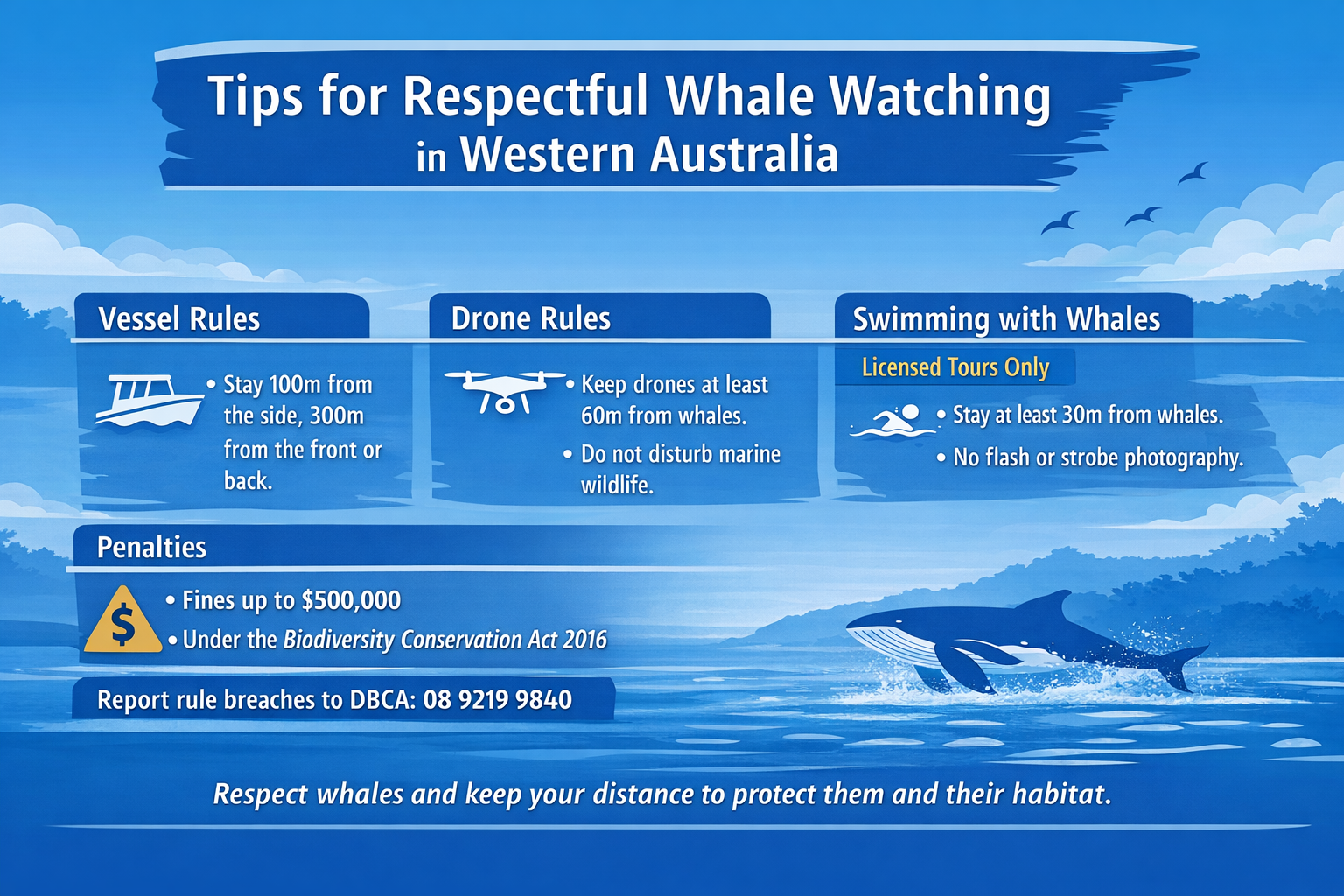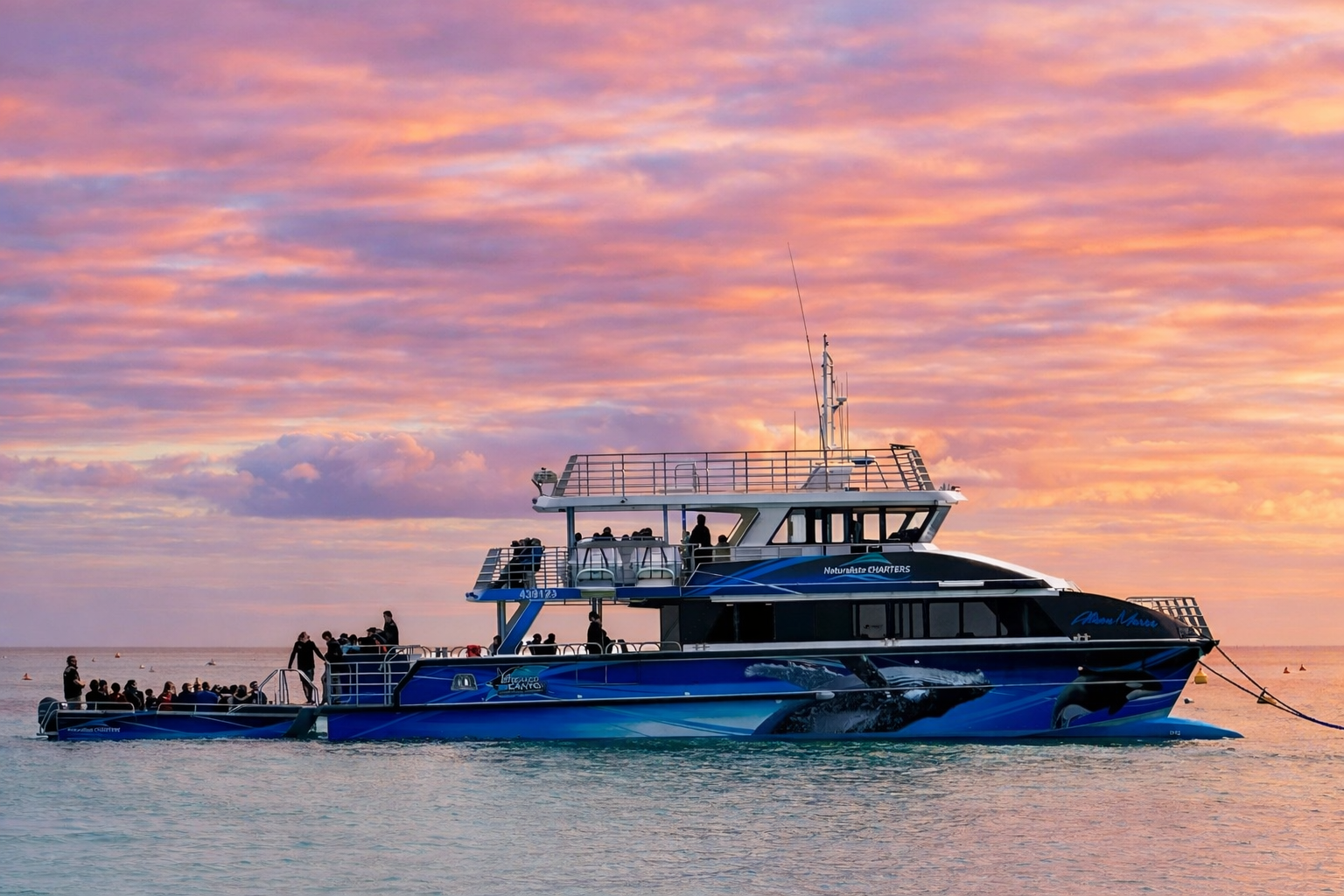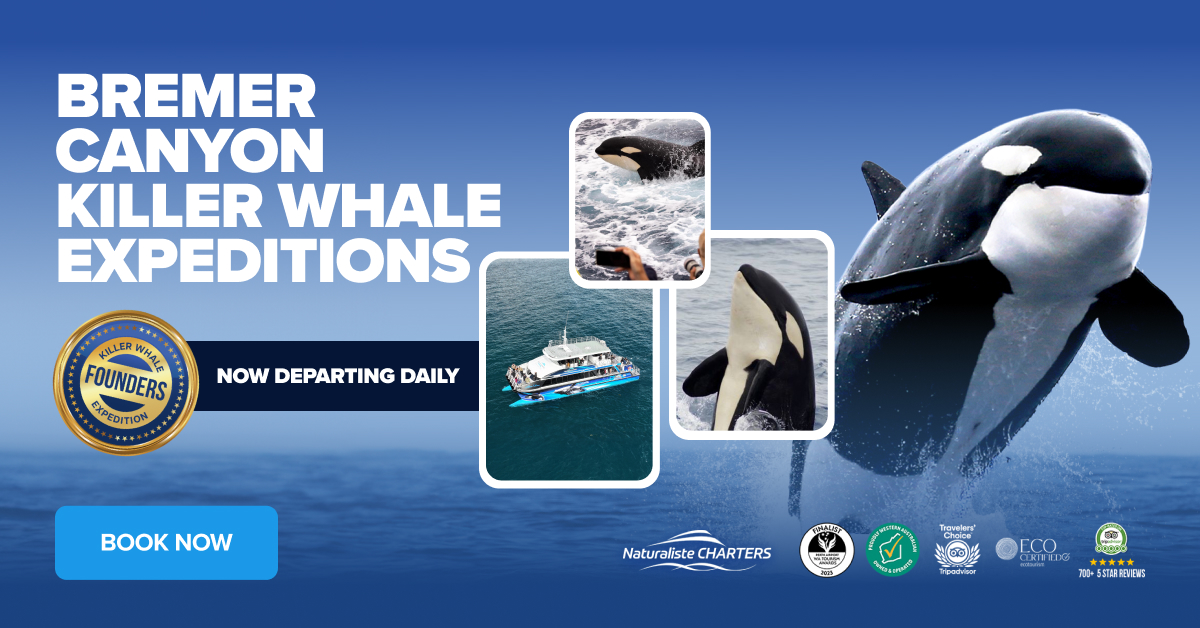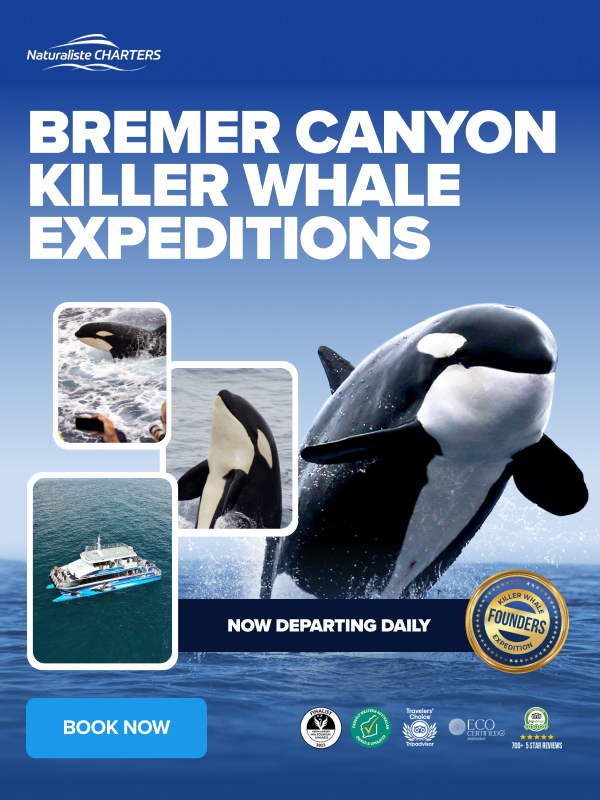Why Do Orca Attack Boats? Explained
Over the past few years, several striking incidents of orca attack boats have captured international attention. A small group of Iberian orca have repeatedly interacted with boats, mainly around the coasts of Spain and Portugal. Since 2020, researchers have recorded hundreds of these encounters, ranging from light nudges to serious rudder damage, and in a few cases, sailboats even sank. Importantly, though dramatic, no humans have been harmed during these events. Scientists now consider this a localised behavioural pattern within a small sub-population of orca, rather than a widespread species trait.
Where is this happening?
Most of these orca–boat interactions occur in the Iberian Atlantic, particularly in the Strait of Gibraltar, the Gulf of Cádiz, and further north along Galicia. Recently, several encounters also took place in shallow estuaries in Galicia, prompting coastguard warnings to smaller vessels. In 2025, sailors reported multiple cases of rudder damage and even a few sinkings in Portuguese waters, showing how persistent this behaviour has become in the region.
What types of boats are affected?
Most reports involve sailing yachts between 9 and 15 metres long, with orca targeting the steering gear. The pattern remains consistent: the whales approach from behind, disable the rudder or steering system, then push or spin the boat. Motorised vessels are rarely affected. Researchers from the Atlantic Orca Working Group (GTOA) identified several individual whales responsible for most of these interactions.
Are people getting injured?
Despite the drama surrounding these encounters, there are no confirmed human injuries. Rescue teams usually tow damaged yachts to safety after steering failure, and only in rare cases do vessels sink. Authorities continue to issue seasonal advisories and emphasise that orca focus on boats, not on the people aboard them.
Why might orca attack boats?
Scientists avoid using the word “attack” because the motives remain uncertain. However, several main theories shed light on the behaviour and why it continues to occur.
Play and object exploration: Young orca are naturally curious and social animals. They often treat rudders like moving toys that react to touch. The motion and vibration create instant feedback, which makes the activity engaging and encourages repetition.
Cultural and social learning: Researchers suggest that one innovative whale, possibly a female known as “White Gladis,” started the behaviour. Younger whales began copying her actions, and over time the trend spread through the pod. This shows how orca culture can evolve through social learning and imitation.
Foraging shifts and exploration: Changes in prey availability, such as bluefin tuna, may lead orca closer to coastal waters and boats. Some individuals also explore estuaries or feed on octopus—behaviour rarely seen before in this population—which could explain their growing curiosity around vessels.
Other ideas, such as revenge or aggression, lack scientific support. Experts agree this is a local, socially learned phenomenon rather than a global orca trait.
Do orca attack boats in Australian waters?
No. Australia supports thriving orca populations, especially off southern Western Australia, yet there are no recorded cases of deliberate orca attacks on boats. Instead, observers often witness natural predation events. Orca hunt beaked whales, tuna, sharks, and sometimes pygmy blue whales in the open ocean. These are normal predator–prey interactions, not aggressive acts toward vessels.
In 2025, pods near Bremer Bay hunted and killed a pygmy blue whale—an extraordinary display of cooperative hunting witnessed by scientists and passengers aboard local wildlife vessels. Similar natural predation has been recorded on great white sharks in southern Australian waters. While European orca sometimes interact with boats, Australian orca remain apex predators focused on hunting marine prey, not investigating human activity.
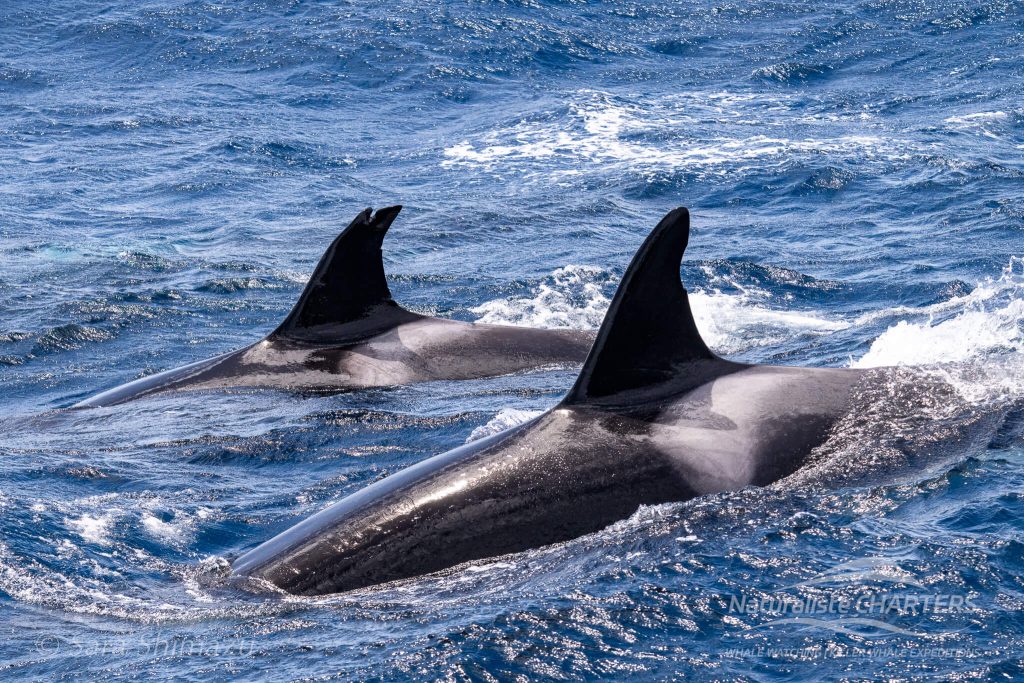
Bremer Canyon Orca Expeditions from Bremer Bay, Western Australia
The Bremer Canyon Environment
If you want to experience orca in Australian waters, the Bremer Canyon Orca Expeditions departing from Bremer Bay, WA provide one of the most reliable opportunities in the world. Bremer Bay sits about five hours southeast of Perth, or two hours from Albany. The season runs from December through April, with full-day tours departing around 8:30 am and returning mid to late afternoon. These expeditions travel offshore to the Bremer Canyon Sub-Basin, a deep marine canyon along the edge of Australia’s continental slope. The mix of upwelling currents and oceanic circulation creates nutrient-rich waters that sustain an extraordinary array of marine life.
The orca in Bremer Bay live in matrilineal pods of 6–20 individuals, led by experienced matriarchs. Researchers have catalogued nearly 300 individual orca, and estimates suggest as many as 200 whales visit the canyon during the season. Their diet is varied and adaptable, including squid, beaked whales, tuna, and several large fish species such as sharks.
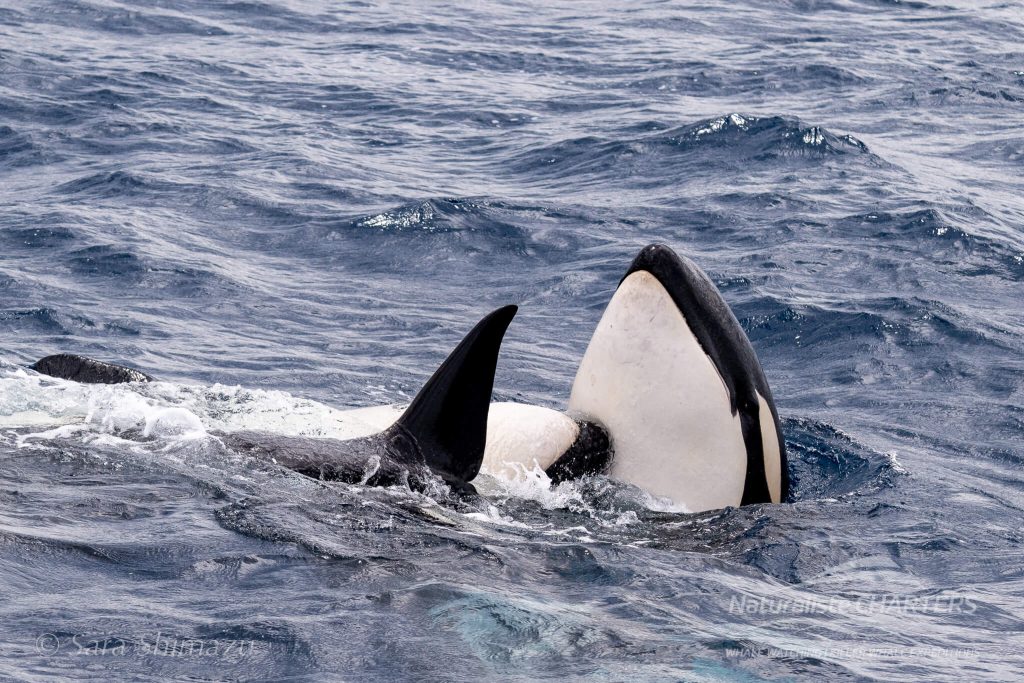
Wildlife Sightings and Onboard Experience
During your expedition, you may encounter sperm whales, long-finned pilot whales, and several species of dolphins, as well as sunfish, great white sharks, and a variety of seabirds, including albatross and shearwaters. Guests travel aboard the Alison Maree, a 23-metre catamaran built for stability and comfort in Southern Ocean conditions. The vessel includes multiple viewing decks, a spacious saloon with panoramic windows, and plenty of open space for observing the action.
Naturaliste Charters provides a sighting guarantee: if no orca appear, guests can return another day free of charge (terms apply). The company maintains a 96% success rate for sightings. Onboard marine biologists share expert commentary and photography tips, while guests can contribute identification photos to citizen science research. These expeditions deliver an unforgettable encounter with wild orca in their natural environment—and all without any concern of orca “attacking” boats.
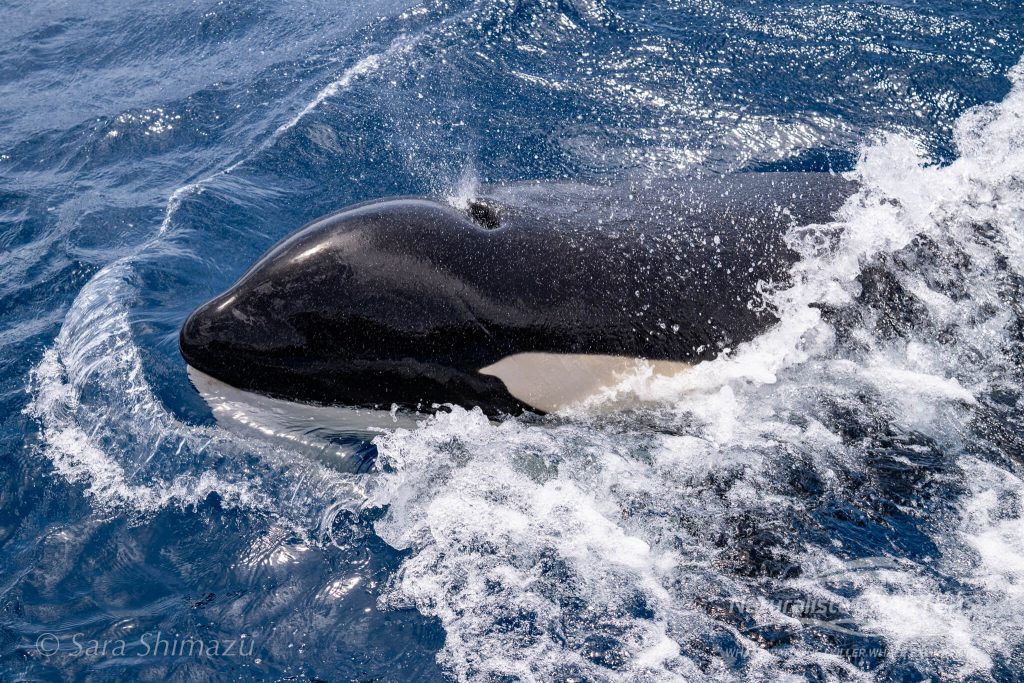
References
Live Science – ‘We completely freaked out’: Orcas are attacking boats in Europe again
The Times – Orcas attack yachts in Spain’s Galicia region prompting coastguard warnings
Practical Boat Owner (UK) – Orca encounters on boats: what you need to know
Yachting Monthly – Adult orcas seem to be passing on yacht attack behaviour to adolescents
Whale and Dolphin Conservation – Open letter regarding Iberian orca interactions (August 2023)
Wikipedia – Iberian orca attacks
ABC News – Pack of orcas attack, kill pygmy blue whale off WA’s south coast
The Sun – Orca attack blue whale in rare video off Australia
Australian Wildlife Journeys – Bremer Canyon Killer Whale Expedition
Western Australia Tourism – Wild orcas and the Bremer Canyon feeding frenzy
To book a Killer Whale (orca) Expedition
Naturaliste Charters – Bremer Canyon Killer Whale Expeditions
IMAGE CREDITS: Naturaliste Charters

